If any country should be grateful to the Economic Community of West African States (ECOWAS) for the sacrifices and immense contributions toward the relative national peace it enjoys today, Sierra Leone is one and Liberia is another.
This fact ought to be obvious to all political actors in Sierra Leone, particularly Ernest Bai Koroma, president for ten years until 2018, and sitting President Julius Maada Bio, a retired army brigadier, who ruled the country as a military dictator from January 1996 to March 1996, when he handed over to the democratically elected government of President Ahmad Tejan Kabbah.
However, it would appear that the present crop of politicians in the country has learned nothing and forgotten nothing! This is most troubling coming from a country that evolved from the settlement of freed African slaves under the former British Empire, but which rose to become a citadel of learning for several independent African leaders through its renowned Fourah Bay College/University.
Somehow, Sierra Leone is still suffering the consequences of an 11-year civil war that killed more than 50,000 people and made hundreds of thousands of refugees from 1991-2002.
There is no love lost between Koroma, 70, leader of the opposition All Progressive Congress (APC), from the predominantly Temne ethnic group of the north, and Bio, 59, leader of the ruling Sierra Leone People’s Party (SLPP), who hails from the rival southeast Sherbro ethnic group.
To date, Koroma has not congratulated his successor Bio for winning the 2018 election and the political ambition, intolerance, and intransigence of the pair are now standing in the way of Sierra Leone’s progress and could degenerate into another avoidable bloody conflict unless drastic measures are taken.
The Electoral Commission for Sierra Leone declared Bio re-elected with 56% of the votes, against 41% for his rival Samura Kamara of the opposition APC in the June 2023 polls. The APC promptly rejected the results claiming that the election was rigged. But the party and its officials have also refused to challenge the results in court because according to them, the SLPP government controls the judiciary.
The post-election disaffection has fed into the country’s deep-rooted ethnic division and political intolerance with potentially dangerous implications.
In December 2023, Koroma was placed under house arrest after several days of interrogation by state security agencies. On the 3rd of January 2024, he was charged with treason over a reported attempted coup d’état on 26 November 2023, which the government claimed was masterminded by the opposition APC members.
During that second shootout within two months in Freetown following similar clashes in September after the June 2023 disputed polls, some 2,000 inmates were reportedly let out of a major prison in the nation’s capital Freetown, while at least 20 people were killed.
The Government alleges that 80 suspects including 15 of Koroma’s serving and former bodyguards are implicated in the coup attempt, but the former president has denied any involvement.
As part of a regional effort to douse the heightened political tensions in Sierra Leone, Nigeria’s President Bola Tinubu, Chairman of the ECOWAS Authority of Heads of State and Government dispatched to Freetown, an ECOWAS delegation, made up of the Presidents of Ghana Nana Akuffo-Addo and Macky Sall of Senegal, accompanied by the President of the ECOWAS Commission, Dr Oumar Alieu Touray and Amb. Abdel-Fatau Musah, ECOWAS Commissioner for Political Affairs, Peace, and Security.
The mission which was at the request of Sierra Leone’s government during the December 2023 ECOWAS Summit in Abuja, met separately, with President Bio and former President Koroma. As a mark of solidarity with Bio, the regional leaders at the Abuja summit, also agreed that an ECOWAS military stabilization force should be sent to Sierra Leone.
According to informed sources, it was President Bio who demanded during the Freetown meeting with the ECOWAS delegation that former President Koroma should leave the country, just as he (Bio) was granted asylum in the US after handing over to the now-late former President Kabbah in 1996. The sources explained that it took some persuasion by the ECOWAS delegation before Koroma could agree to his “temporary exile” plan in Nigeria.
This was based on conditions that – the Sierra Leone Government should discontinue all legal and administrative procedures against Koroma; continue disbursement of his benefits/entitlements as a former head of State; secure his residences in Sierra Leone and consider refunding his medical and travel expenses. Backend negotiations involving ECOWAS, the African Union, and the Commonwealth were also set in motion with government and opposition officials in Sierra Leone toward resolving the political disagreement.
But on the eve of Koroa’s planned travel to Nigeria on 4th January, President Bio was said to have received a letter from the ECOWAS Commission urging him to facilitate the process, but instead, observers were surprised to see Koroma in the dock, charged with treason by the Bio administration.
In the U-turn and utter embarrassment of ECOWAS, Sierra Leone Government officials were quoted as saying that Bio never agreed with ECOWAS that Koroma should leave the country. This narrative, canvassed mainly by hawks in Bio’s SLPP, is seen as the government’s ploy to further humiliate Koroma before granting him a presidential pardon and permission to leave the country.
Ordinarily, crime suspects should have their day in court, under the rule of law and a transparent process, but the way and manner the Bio administration is going about Koroma’s case smacks of political vendetta and a slap on the face of ECOWAS and Nigeria.
Instead of showing gratitude to ECOWAS for always supporting peace moves in Sierra Leone, Bio is in utter arrogance, behaving as if the region owes him and Sierra Leone a living.
It took ECOWAS’ principled stance plus resources and the sacrifice of the blood of men and women in the armed forces of member States to end the civil wars in Liberia and Sierra Leone.
From Liberia, the ECOWAS Ceasefire Monitoring Group (ECOMOG) Taskforce moved to Sierra Leone in 1997. On the 12th of February 1998, that force led by Nigerian Commander, Col. Maxwell Kobe reinstated Sierra Leone’s government of elected President Ahmad Tejan Kabbah, which was sacked in 1997 by the Major Johnny Koroma-led Armed Forces Revolutionary Council and its rebel Revolutionary United Front (RUF) ally.
With much of Sierra Leone ravaged by the civil war, Kobe, who previously served as ECOMOG Taskforce Commander in Liberia in 1992/94, had to operate from Cape Sierra, the only functional hotel in the capital Freetown, where this writer as a War Correspondent first met Col. Kobe and his team in 1998, and witnessed first-hand how he and his team planned and executed military operations to mop-up remnants of Sierra Leone rebels.
A recipient of many awards for his gallantry, Kobe was later promoted to Brig.-General before he died on duty, serving as Sierra Leone’s Chief of Defence Staff (1998-2000).
To underscore the level of externalization of Sierra Leone’s conflict, Charles Taylor, Liberia’s former warlord president is currently serving a 50-year sentence in a UK prison for war crimes supporting Sierra Leone’s RUF, which started the civil war in 1991.
This chronology of events is deliberate to underscore the disappointment and outrage that Sierra Leonean political actors would be the ones pocking ECOWAS or Nigeria in the eye.
Unfortunately, Sierra Leone remains on the bottom rung of the UN Human Development Index, ranking 181 out of 195 nations, and perennially dependent on foreign assistance to finance its national budget.
The country’s sluggish economic growth is compounded by mounting local and foreign debts, rocketing inflation, and unemployment of largely uneducated youths, many of whom have been driven to drug abuse and other crimes. The government is also accused of corruption, nepotism, and mismanagement.
The proper approach for the Bio administration after a divisive and costly election is to encourage national cohesion, healing, and reconciliation.
The implementation of late President Kabbah’s Agenda for Change (AFC 2007) was truncated, just as his successor President Koroma’s Agena for Prosperity (AFP 2013) made little progress. Yet, the issues highlighted in the Truth and Reconciliation Commission’s Report of 2004, as the perennial root causes of conflicts in Sierra Leone, especially, successive years of bad governance, endemic corruption, and denial of basic human rights persist.
Apart from the opposition party’s complaints, local and international election observers also raised issues with the June 2023 electoral process, the 5th successive post-conflict polls, which had raised hopes for democratic consolidation in Sierra Leone.
The observers noted in their various mission reports that the result collation and management process lacked transparency, with some analysts pointing out that none of the presidential candidates could have scored the 56% vote threshold set by the constitution. But assuming without conceding that Bio was re-elected fair and square, wisdom requires that he should be magnanimous in victory instead of engaging in a self-distractive witch-hunt.
ECOWAS should still engage with Sierra Leone political stakeholders, including President Bio and former President Koroma, who owe themselves, their country, and 400 million Community citizens an obligation and responsibility for peaceful, patriotic, and responsible conduct.
With the resurgence of military coups in the region and four of its 15 member States under military dictatorships, ECOWAS should recalibrate its intervention strategies to prioritize support and promotion of good governance and protection of community citizens in line with the vision of an ECOWAS of People, instead of an ECOWAS of States or ECOWAS of powerful and politically exposed persons.
No individual should be more powerful than the state, or above the law. There should be no room for fraudulent military coups, but strict application of the “zero-tolerance” provision for unconstitutional change of government under ECOWAS protocols. Deployment of regional military forces to prop undemocratic leaders will only promote tyranny and oppression!







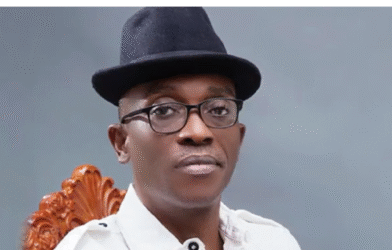
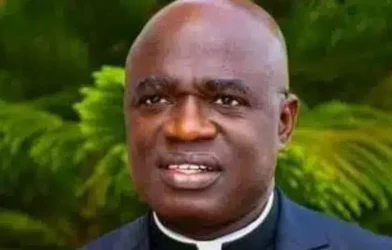
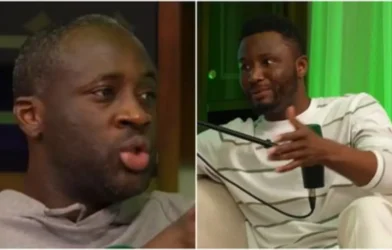
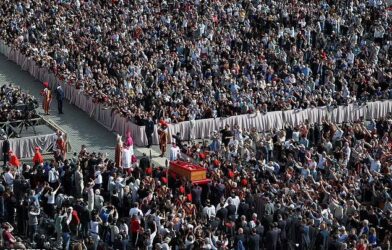
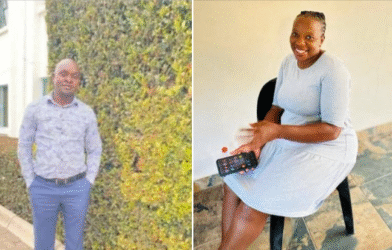
Comments are closed